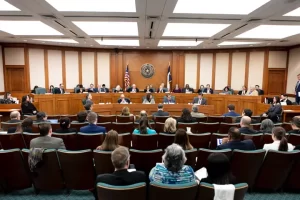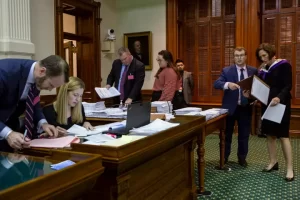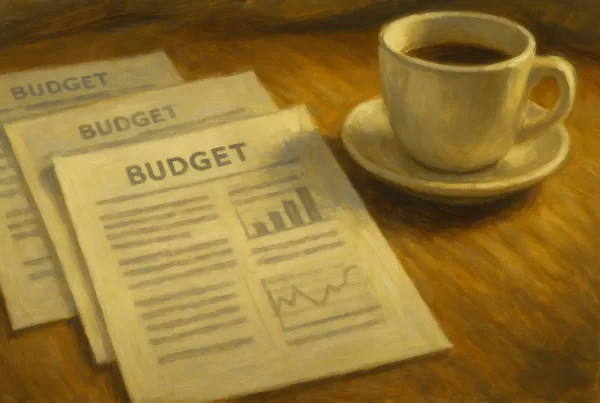The Texas Legislature makes the laws that govern Texas, setting public policy on education, transportation, taxation, criminal justice, and business regulation. It consists of two chambers: a 31-member Senate and a 150-member House of Representatives. In addition to passing new laws and revising existing ones, the legislature controls the state budget and provides limited oversight of local governments and state agencies.
Alongside the executive and judicial branches, the Legislature forms one of three co-equal branches of Texas state government.
Its powers go beyond lawmaking. The Legislature can propose amendments to the Texas Constitution, impeach and remove officials for misconduct, confirm or reject certain executive appointments, and oversee the redistricting process every ten years by drawing new boundaries for congressional and legislative districts, as well as state judicial districts.
The Legislature meets at the Capitol building in Austin, Texas.






Relationship between Chambers
For a bill to become a law in Texas, it must be approved by a majority of members in each chamber of the legislature. It is then sent to the governor, who may sign it, veto it, or allow it to become law without a signature.1
The two chambers of the legislature function independently and set their own rules of procedure.2 Representatives meet in the west chamber of the Capitol and senators in the east chamber.
The Senate is called the ‘upper’ chamber, because it has fewer members than the House—hence each senator individually is more powerful than each representative. Additionally, the Senate has powers not granted to the House, including approving or rejecting appointments made by the governor.3 The House is called the ‘lower chamber.’ However, in many respects the two chambers are co-equal in power. Formally, there is no hierarchical relationship between them.
Elections and Term of Office
Members of the Texas Legislature are elected from geographic districts.
- House members serve 2-year terms.
- Senate members serve 4-year terms, except at the beginning and end of the 10-year redistricting cycle, when some members serve 2-year terms. The Senate has a lottery system to determine which senators serve for how long.
Neither the House of Representatives nor the Senate has term limits. Elections for the Texas Legislature are held in November of even-numbered years (2024, 2026, 2028, etc). Primary elections are held beforehand, typically in March.








